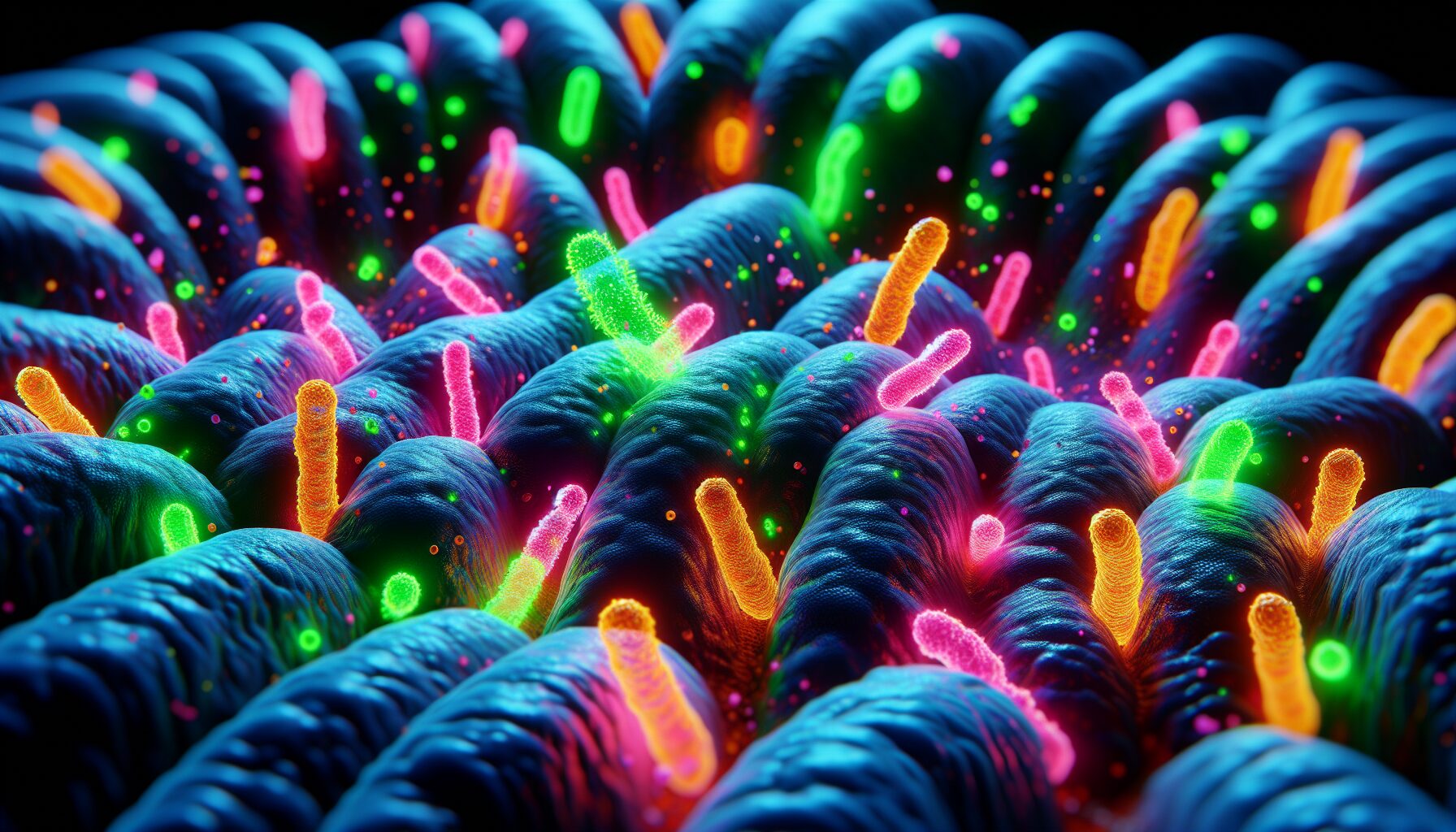
How Sphingolipids Benefit Our Health : Sphingolipid Benefits
While you may have heard of the possible health implications of cholesterol and omega 3 you may not have heard about how sphingolipids influence our wellbeing.
Sphingolipids are part of a large family of lipids or fats. They are an important structural part of cell membranes which form our body tissues and organs. Sphingolipids are thought to add structural integrity and membrane flexibility or fluidity. Sphingolipids hang inside the cell membrane and some are an important part of cell signalling pathways within the body.
Brain and spinal cord tissues are rich in complex sphingolipids. This is not surprising considering the very high total fat content of the brain. Current research suggests they play a role in controlled cell death and healthy cellular growth.
Sphingolipids are a relatively new or novel nutrient. Not a lot is known about these long chain fatty acid molecules but there is some evidence that they could influence risks of certain diseases. This could include heart or circulatory diseases and some cancers.
Here the possible health benefits of sphingolipids will be considered to show how they are important and influential to our overall wellness on a day to day basis.

Sphingolipids
Our cells are enveloped or wrapped in a layer of fatty acids. This cell membrane or barrier found in animals and plants keeps water in the cell and outside of the cell.
Sphingolipids are very long chain fatty acids with some modifications that form an important part of this large cell barrier. There are various sphingolipids which form a large family or group that are found in both animals and plants.
Animals contain more sphingolipids than plants do on average. Mammal foods such as beef, milk or poultry also contain a vast diversity of sphingolipids. Examples of sphingolipid rich animal foods includes cheeses, chicken, cream and eggs.
Plant sphingolipids are not as varied as animal sphingolipids. In plants sphingolipids protect plant cells from lesions from fungal parasites. Examples of plants which are rich in sphingolipids include the sweet potato, peanuts, spinach, apples and soybeans. Soybeans contain a massive amount of specific sphingolipids such as ceramides.
Not a lot is known about sphingolipids at present but research shows that they are influential on our health.
How Sphingolipids Could Influence Our Health
One way researchers learn about health benefits of nutrients is through studying genetic defects in nutrient processing and deficiencies.
One genetic disorder in sphingolipid processing called Fabri disease leads to unusual expansion of heart muscle tissue. Most individuals with this disorder will die from heart attacks and suffer from bad heart problems.
Research shows that sphingolipids form an important part of a signalling network within our cells. Sphingolipids such as ceramides initiate a cell death response and cause controlled autophagy or mitochondrial mitophagy in high amounts. Other sphingolipids are able to activate cell differentiation or cell growth. Healthy sphingolipid metabolism is mediated by important antioxidants like glutathione and promotes healthy cell cycles within the body. Sphingolipids also regulate important enzymes within the body.
While dietary sphingolipids are not essential they are thought to support healthy growth of our cells and are absorbed once eaten. Sphingolipids have been shown to accumulate throughout various organs from sphingolipid supplements.
Individuals with Fabri disease experience a massive uptake of a specific ceramide sphingolipid which causes the heart to grow excessively and then fail. The specific ceramide activates cell inflammation and death within heart cells. Individuals with Fabri disease also experience brain white matter issues. Other sphingolipids play a role in neurone or nerve cell survival in Parkinson’s disease. This shows how important sphingolipids could be for our health.
Current research shows that the diseases where there is a lot of evidence for possible health benefits from dietary sphingolipids include colon cancer and blood vessel plaque formation or atherosclerosis.

Sphingolipids And Colon Cancer
One of the biggest research areas for supplementary or dietary sphingolipids so far is for promoting gut health. Current research shows that dietary sphingolipids could reduce the risk of colon cancers. Intestinal cells undergo a really fast turnover and sphingolipids could support regulation of healthy intestinal cell cycles.
One preclinical study found that only a small amount of dietary sphingolipids could reduce the number of odd or malfunctional cells specific to the colon. This is an early indicator for colon cancers. Reductions in these abnormal cells were up to 70%.
Research also suggests that sphingolipids could supress inflammation which would reduce risk of colon cancer too. Dietary ganglioside for example could protect the small intestine from excessive inflammation in some cases. Research indicates that dietary sphingolipids such as ganglioside could reduce levels of circulating inflammatory cytokines and improve anti inflammatory cytokine levels. Some sphingolipids also improve intestinal cell tight junction health.
This means that modest increases in consumption of sphingolipid rich foods or supplements containing specific sphingolipids may reduce the risk of colon cancer. However human trials with this novel nutrient class have not been conducted yet.
Sphingolipids And Gut Microbe Health
Our gut bacteria are thought to have a massive influence on our health. Sphingolipids are actually used by certain bacteria to stick to cells. Intestinal bacteria and gut microbes also contribute to sphingolipid metabolism in the intestinal tract. Some gut bacteria are able to digest dietary sphingolipids and these may work in conjunction with bacterial products in the gut to support our health.
One study has found that the amounts of a health promoting bifidobacteria may improve within the gut from increases in sphingolipid consumption. Other studies have also found that levels of gut bacteria may improve with complex sphingolipid intake. This means that sphingolipids may have a wider role in our health than is currently thought.
Sphingolipids could promote healthy management of systemic inflammation and more optimal brain health through improvements in certain gut bacteria. There is also evidence that healthy sphingolipid levels directly contribute to optimal brain health and could prevent cognitive declines in the elderly. Sphingolipids could have some role in preserving cognitive capacity and learning.

Sphingolipids And Heart Health
One of the most influential areas of sphingolipids is thought to be on the health of our heart and circulatory system. Some researchers have found that specific sphingolipids called sphingomyelin could influence atherosclerosis. This is where plaques form with the blood vessels which raise blood pressure and could actually cause heart attacks or strokes.
Research currently suggest that sphingomyelin may directly effect risk factors of atherosclerosis. Sphingolipids like sphingomyelin could bind to LDL and influence the use of LDL within cells. High LDL levels are a big risk factor for cardiovascular disease.
Studies have found that dietary sphingolipids such as sphingomyelin and glycosphingolipids could lower total cholesterol. They also show that specific sphingolipids could improve HDL levels too. Egg sphingomyelin also seems to enhance the transport of cholesterol rather than deposition. Sphingomyelin supplementation may prevent fatty liver and reduce obesity risks but more research is required.
These are influential factors on circulatory health and so sphingolipids may positively influence heart health.

Sphingolipids And Diabetes
Current research shows that sphingolipids could be a little like cholesterol within the body in terms of influences on our wellness. Unhealthy or elevated levels of the sphingolipid sort known as ceramide could cause health issues within the body. As shown ceramide plays a healthy role in signalling controlled cellular death within the body but excess ceramide could cause health issues.
Research has shown that excessive ceramide levels could cause excessive cellular death to important pancreatic cells needed for insulin production. Excessive death of pancreatic β cells due to ceramide could cause increased risk of diabetes. Ceramide also suppresses the expression of an important glucose transporter and may lower glucose intake into some cells. This has implications for diabetes.
Ceramide Metabolism And Disease Risk
Elevated antioxidant levels within the body such as glutathione could mediate or regulate levels of ceramide within cells and influence cell death pathways. Glutathione could prevent the breakoff or excess accumulation of ceramide within cells. Other studies show that vitamins C, D and K could also positively influence ceramide or complex sphingolipid metabolism also.
Some foods such as soybeans, tofu, tempeh and soy milk are rich in ceramides. These may be foods to avoid in excessive amounts to prevent ceramide build up within the body. While research suggests that ceramide may have some influence on colon cancer this sphingolipid could be harmful in excess especially in relation to diabetes risk.

Sphingolipids And Skin Health
Some studies suggest that ceramides and other sphingolipids could have a positive influence on skin health. There is a possibility that ceramide could influence skin health in a similar means to corticosteroids and induce cell death of skin cells. This may be how ceramides influence atopic dermatitis for example.
Other studies show that sphingolipids may improve skin moisture and appearance in some cases. Naturally modified ceramides which are retained within the skin cell membrane are thought to improve skin barrier function. Evidence from clinical studies supports the use of sphingomyelin supplements as a possible means to improve skin health.
Fumonisin Food Contaminants And Sphingolipid Metabolism
Fumonisins are a food contaminant or toxin which causes harmful fluid build up within the lungs and brain white matter softening. These are severe disorders. Fumonisins inhibit the production of ceramide and reduce the formation of complex sphingolipids. This has a preventative effect on healthy cell cycling and blocks usual cellular development or progression. Excess localised cell death in certain organs or tissues from fumonisins disruptions in sphingolipid metabolism could cause harmful issues as with ceramides and diabetes.
If anything this emphasizes again how important sphingolipid metabolism is for maintaining optimal health. Overall sphingolipids are important for our health and could be supplemented for but clinical research is not currently available to prove any definite health benefits.

Summary
Sphingolipids are new on the wellness scene. They could have a wide range of health implications from reducing risk of colon cancer to mitigating blood vessel plaques.
Sphingolipids are part of a larger family of fats which are an important structural component of cell membranes throughout the body. They also provide tissue cell fluidity. You can find large amounts of complex sphingolipids in brain and spinal cord tissues.
Not a lot is known about these nutrients. Rich sources of complex sphingolipids are found in animal foods such as beef or poultry. Plants do contain sphingolipids but are in smaller and less diverse amounts.
The biggest research area so far for sphingolipids is in gut health and colon cancer. Dietary sphingolipids may be able to reduce the risk of colon cancers and support healthy intestinal cell cycles. One study found that dietary sphingolipids reduced abnormal colon cell counts by 70% and they could supress systemic inflammation.
Sphingolipids could also improve overall gut microbe wellness with studies finding that dietary sphingolipids able to improve levels of health promoting gut bacteria. This again could lower systemic inflammation. There is also evidence from research that healthy sphingolipid levels contribute to memory and learning.
Another core interest area for sphingolipids is in blood vessel plaque formation. Sphingolipid complexes including sphingomyelin could actually reduce risk of strokes via improving risk factors such as HDL to LDL levels and cholesterol transport in the blood.
While some studies show ceramide promotes skin health other studies show that excessive free ceramide may cause excess apoptosis and increases risk of diseases such as diabetes. Soy is rich in ceramides. Antioxidants influence sphingolipid metabolism and other complex sphingolipids are thought to contribute to healthy skin appearance.
For more interesting articles see the main articles page.





